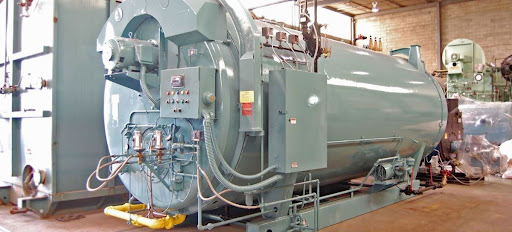Business
Essential Guide to Waterside Boiler Cleaning: Everything You Need to Know for Effective Maintenance

Waterside Boiler Cleaning
Waterside boiler cleaning is a crucial aspect of boiler maintenance that ensures the efficient and safe operation of boilers. Boilers are vital in various industries for heating, power generation, and processing applications. Over time, boilers accumulate scale, deposits, and corrosion, affecting their performance and longevity.
Understanding Boiler Scaling and Fouling
Scaling and fouling are common issues in boilers caused by the accumulation of minerals, impurities, and deposits on the water-side surfaces. These deposits insulate heat transfer surfaces, leading to reduced efficiency, increased fuel consumption, and potential equipment failure.
Importance of Regular Maintenance
Regular maintenance, including waterside boiler cleaning, is essential to prevent scaling and fouling, which can result in costly repairs and downtime. By maintaining clean waterside surfaces, boiler efficiency is optimized, and the risk of corrosion and equipment failure is minimized.
Different Methods of Waterside Boiler Cleaning
Chemical Cleaning
Chemical cleaning involves the use of specialized chemicals to dissolve and remove scale and deposits from boiler surfaces. This method is effective for moderate to severe scaling but requires proper handling and disposal of chemicals.
Mechanical Cleaning
Mechanical cleaning techniques, such as brushing and water blasting, physically remove deposits from boiler surfaces. Mechanical methods are suitable for light to moderate scaling and are often combined with chemical cleaning for optimal results.
Steps Involved in Effective Maintenance
Inspection and Assessment
Before cleaning, thorough inspection and assessment of boiler surfaces are necessary to determine the extent of scaling and fouling and to select the appropriate cleaning method.
Choosing the Right Cleaning Method
Based on the assessment, the most suitable cleaning method, whether chemical or mechanical, is chosen to effectively remove deposits while minimizing damage to boiler components.
Execution and Monitoring
During cleaning, proper execution and monitoring ensure that the cleaning process is conducted safely and efficiently. Continuous monitoring helps to detect any issues or complications that may arise.
Benefits of Professional Services
Expertise and Equipment
Professional boiler cleaning services offer expertise, specialized equipment, and advanced techniques to ensure thorough and effective cleaning while minimizing downtime and operational disruptions. Their comprehensive approach not only removes existing deposits but also helps prevent future scaling and fouling, prolonging the lifespan of the boiler and optimizing its performance. Entrusting the cleaning to professionals provides peace of mind, knowing that the task is handled with precision and efficiency.
Safety Considerations
Professionals adhere to strict safety protocols and regulations to prevent accidents, chemical exposure, and environmental contamination during the cleaning process.
DIY Maintenance Tips
Safety Precautions
When attempting DIY boiler cleaning, it’s essential to prioritize safety by wearing protective gear, following proper procedures, and avoiding hazards associated with chemical exposure and high-pressure equipment.
Basic Cleaning Techniques
Simple techniques such as flushing the boiler, descaling with vinegar or citric acid, and brushing off visible deposits can help maintain boiler efficiency between professional cleanings.
Common Mistakes to Avoid
Neglecting Regular Cleaning
Neglecting regular maintenance and cleaning can lead to severe scaling, fouling, and corrosion, compromising boiler performance and longevity. Over time, these issues can escalate, resulting in costly repairs or even premature boiler failure. Therefore, prioritizing routine maintenance is essential for preserving the efficiency and reliability of your boiler system.
Using Improper Cleaning Agents
Using harsh or incompatible cleaning agents can damage boiler surfaces and exacerbate scaling and fouling issues. It’s essential to use recommended cleaning solutions and follow manufacturer guidelines.
FAQs
How often should waterside boiler cleaning be performed?
Regular cleaning should be performed at least annually, with frequency depending on factors such as water quality and boiler usage.
Can I use household cleaners for boiler cleaning?
No, household cleaners may contain ingredients that are harmful to boiler surfaces and can cause damage. It’s best to use specialized boiler cleaning products.
What are the signs that my boiler needs cleaning?
Signs of scaling and fouling include reduced efficiency, increased fuel consumption, uneven heating, and unusual noises or vibrations. These indicators often manifest gradually over time, gradually impacting the boiler’s performance and reliability. It’s crucial for homeowners to remain vigilant for these signs and address them promptly to prevent further deterioration of the boiler’s condition.
Conclusion
Waterside boiler cleaning is an integral part of boiler maintenance that ensures optimal performance, efficiency, and safety. By understanding the importance of regular cleaning, choosing the right cleaning method, and implementing effective maintenance practices, boiler owners can prolong the lifespan of their equipment and minimize costly repairs.

